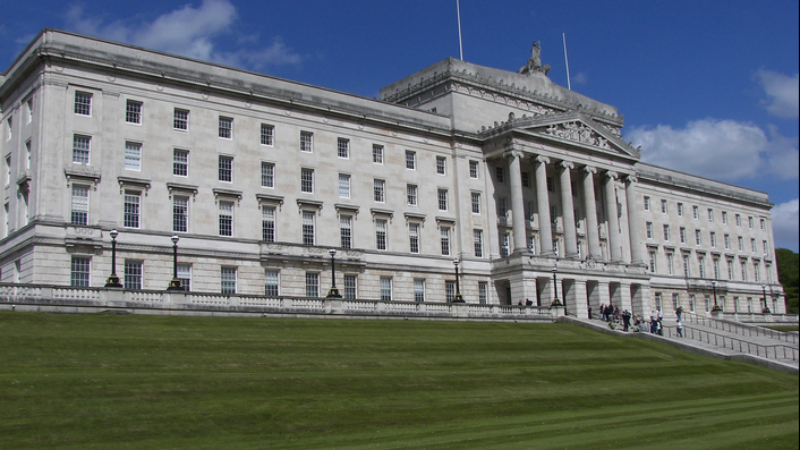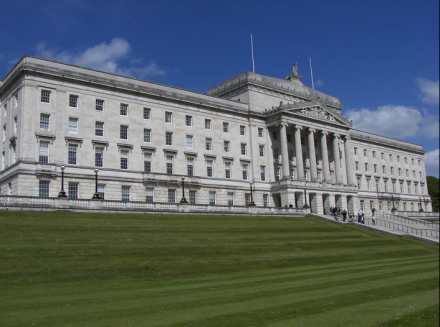

“Do I have to call you ‘father’?” asked the IRA man. “Bloody hell, no!” laughed the Muslim cleric, still baffled and a bit nervous at why on earth he had been called to this surreptitious meeting in the first place. And so, amid peeling wall paint and the faint background of the Derry traffic, we drank Barry’s Tea and I let yer man do most of the talking, his initially meandering from questions about my Irish music-making into our lively debate on the state of Ulster football (GAA). Then sharply, “Whatever the Brits say to you, they’ve gone and torn up the Good Friday Agreement…the truth is it’s buried. You can taste a united Ireland”.
The recent publication by government of its Brexit position paper, Northern Ireland and Ireland, asserts a commitment to “upholding the Belfast (‘Good Friday’) Agreement in all its parts”, with the document punctuated by repeated references to the “seamless and frictionless” Irish border that it claims will obtain after the UK’s departure from the EU customs union, minus the physical border posts which would in reality be sitting ducks for resurgent Provies or other republican groups.
In setting out its plans to safeguard the peace process, the document is correct that the common travel area of free movement of citizens between Britain, Ireland and the islands long predates European Union membership, as does the reciprocal status in law of Irish and British citizens as non-aliens in both jurisdictions.
However, there is a vagueness and some mendacity in the paper’s denial and concealmeant of the explicit legal contingency of both the British-Irish agreement (signed between the governments) and the multi-party agreement (signed by eight Northern Ireland parties and the two governments) upon institutions of the European Union, EU law and established directives on citizens’ rights and the movement of persons, goods and services.
While it is not the case that the Brits have “torn up” the Good Friday Agreement and rather the European Commission’s own negotiating directives call for “flexible and imaginative solutions” to Ireland’s unique situation, there is a quality of fantasy in the government’s assertion that outside the customs union and EU-wide product standards, the independent UK customs regime can somehow eliminate the need for goods checking at the border by smart tracking of all non-EU trade policy-compliant third country imports into Britain from the point of origin through to the end user, and additionally prevent resale.
With the manifold complexities of differential EU and UK tariffs and cumbersome proposed systems for reimbursement on re-marketing, it is little wonder the paper itself admits, “We acknowledge this is an innovative and untested approach that would take time to develop and implement”.
This mess of tangled red tape might sound as sonnets to the cottage industry of traditional smugglers of sheep and diesel across the lovely green borderlands but, from an ethical point of view, the human cost of peace in Northern Ireland has been too dear in lives and too painful for it to be a mere afterthought to Project Hard Brexit or – if I am being cynical – used as a Trojan Horse negotiating tactic to leverage that Tory free trade deal with the EU.
It is therefore into this space of government callousness that the Labour movement both in Britain and Ireland needs to step up and, in the first instance, forge a common signed three-way policy stance on Brexit and the Irish border which listens to the people it most affects, and explicitly harmonises the position of the Labour Party in Westminster with that of our sister institutions, the SDLP and the Irish Labour Party, which have been working on the front line of these issues.
My colleagues among Northern Ireland civil society peace NGOs, political and religious leaders and border councils have argued thoughtfully and passionately for a special status for the North within the EU customs union and the single market, something for which the Irish government by all accounts would be willing to pay. A number have expressed concern that Labour has demonstrated some passivity in the face of this Tory adventure and could be doing more to fight the corner of the people of Northern Ireland, where questions of borders, national identity and economy are so intertwined with the history of The Troubles.
At the forthcoming Labour Party conference, the Labour Party Irish Society will be hosting an historic fringe meeting which brings together Labour frontbench MPs on Brexit and Northern Ireland with leaders of our Northern Irish and Irish sister parties. It is the beginning of an informed three-party Labour consensus-building towards an honest and courageous position which puts the people of Northern Ireland and the island of Ireland as a whole front and centre in our dedication to keep the peace.
Sheikh Dr Muhammad Al-Hussaini is senior fellow in Islamic Studies at the Westminster Institute and universities officer of the Labour Party Irish Society.




More from LabourList
‘AI regulation is key to Labour’s climate credibility’
Ben Cooper column: ‘Labour needs to rediscover its own authentic populism’
‘Westminster rethought: a new purpose built site and a museum of democracy’